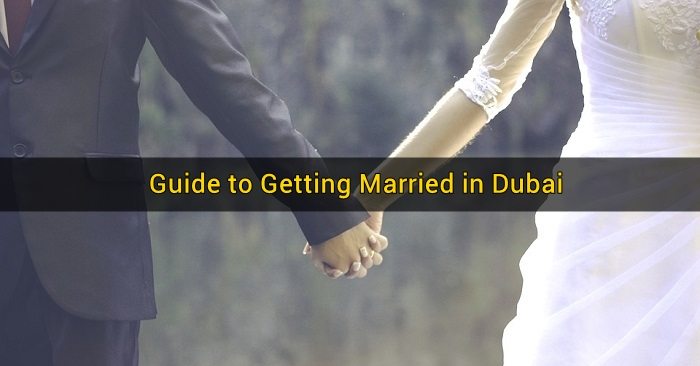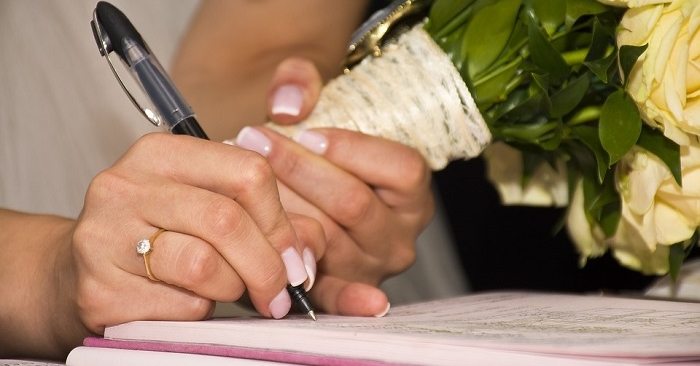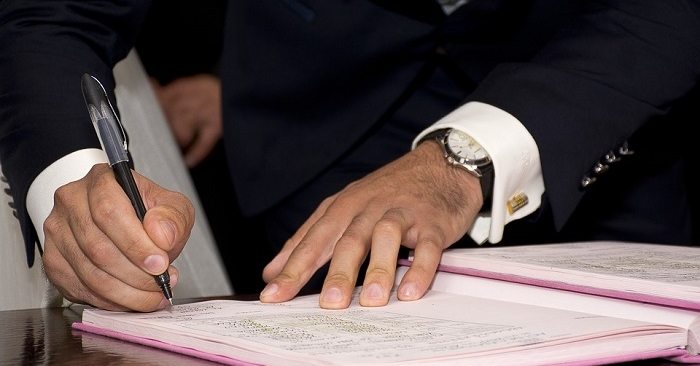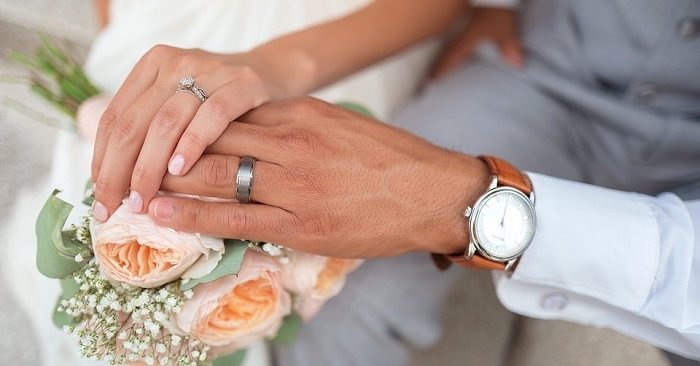Nowadays, more and more people are heading to Dubai for work and business purposes. Eventually, some of them end up staying here to settle down, get married, and start a family.
Just like in other countries and cities, Dubai marriages involve certain legalities, depending on the couple’s nationality and / or religion. If you are thinking about “tying the knot,” read on to learn about the basic rules and requirements for getting married in Dubai.
Related Post: Getting Married in Seychelles for Dubai Expats

Expat Guide to Getting Married in Dubai
Depending on your situation, the rules and requirements for Dubai marriages are as follows:
For Expatriates:
You must be at least 18 years old to be legally married in Dubai. There should be two witnesses present, and they should have their IDs with them.
Check with your embassy (and church) for their requirements. These usually include:
- Couple’s Birth Certificates
- Couple’s Passports (original and photocopies)
- Passports of Witnesses (original and photocopies)
- UAE Medical Fitness Certificate and Blood Test Taken at the Health Ministry
- Final Divorce Papers and Former Marriage Certificates (for divorcees)
- Death Certificate of Previous Spouse (for widows / widowers)
If you get married in English, your marriage certificate will be in English, too. For this to be valid in the UAE, you will need to:
- Have your marriage certificate translated into Arabic by an official translator.
- Bring the English and Arabic versions to the Notary Public at the Dubai Courts for certification.
- Bring your certificates to the Ministry of Justice and to the Ministry of Foreign Affairs for authentication.
- Visit your embassy to have your certificates authenticated for use in your own country.
NOTE: If you and your spouse have different nationalities, you will need to accomplish requirements with both of your embassies.

Christian Marriages:
This will depend on your nationality. To be sure, check with your embassy for their requirements and procedures. In most cases, you will be asked to bring your birth certificates, passports, and other documents. You may also need to bring along a couple of witnesses. Moreover, if you and your spouse have different nationalities, you will need to ask both of your embassies for their respective requirements.
As stated earlier, if you get married in English, your marriage certificate will be in English as well. Hence, this will need to be translated into Arabic and then authenticated at the Dubai Courts, the Ministry of Justice, the Ministry of Foreign Affairs, and your embassy.
Islamic Marriages (for UAE nationals):
Islamic Marriages are held in the Marriage Section of the Islamic Courts. Both applicants must be UAE nationals or hold valid UAE residence visas. Based on Sharia law, the groom should be a Muslim, but the bride may be of any religion. On the other hand, if the bride is a Muslim and the groom is a non-Muslim, then the latter must convert to Islam.
The bride’s father must be present at the wedding, along with two other male Muslim witnesses. If there is a dowry agreement, this should be specified, paid, and settled beforehand. If there is no dowry involved, there should be a written declaration confirming that no dowry is needed.

Meanwhile, the following documents are required for obtaining the marriage license:
- Couple’s Passports (original and photocopies)
- Identification Papers of Bride’s Father and Witnesses
- Letter of Consent from Bride’s Father and Certified Copy of Passport (if he is unable to attend)
- Declaration of Father’s Death and Consent of Bride’s Brother or Uncle (if her father is deceased)
- No Objection Certificate from Bride’s Embassy or Consulate (if her father is a non-Muslim)
- Proof of Divorce or Death Certificate of Former Spouse (if applicable)
After the ceremony, a UAE marriage license will be given. This should be taken to the Ministry of Justice for authentication.
Islamic Marriages (for non-UAE nationals):
Non-UAE nationals who are Muslims and planning to get married in Dubai should have valid UAE residence visas. The bride’s father, along with two other male Muslim witnesses, must be present at the ceremony in the Marriage Section of the Dubai Courts.
The following documents are required:
- Couple’s Passports (original and photocopies)
- Passports, Copies, and Identification Papers of Bride’s Father and Witnesses
- No Objection Certificate from Bride’s Embassy or Consulate, translated to Arabic and attested by the Ministry of Foreign Affairs (if her father is a non-Muslim)
- Proof of Divorce or Death Certificate of Former Spouse (if applicable)
After the ceremony, a UAE marriage license will be given. In order to be valid in your home country, you will need to take it for authentication to the Ministry of Justice, Ministry of Foreign Affairs, and your Embassy or Consulate.
NOTE: For those whose religions are other than Christianity or Islam, contact your respective embassies for the specific marriage requirements and procedures.
Court Marriages
Meanwhile, for those who are planning to have a court marriage, the Dubai Courts provides an online portal. Marriage applicants may register under the “eZawaj” section of the Dubai Courts website.

REMINDER: The information presented in this article is for guidance purposes only. In any case, if you are planning to get married in Dubai anytime soon, please visit your embassy or consulate to know their respective requirements and procedures.
Comments are closed.